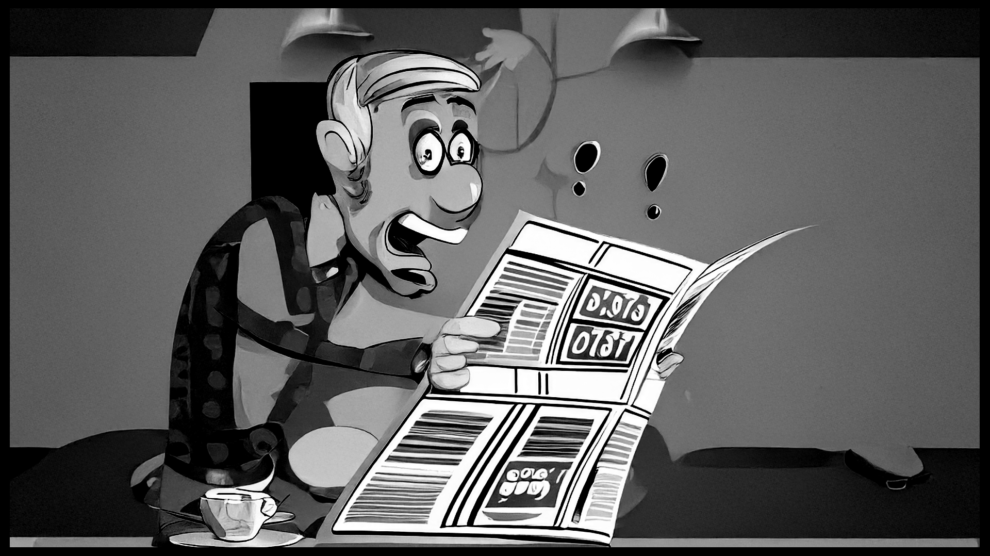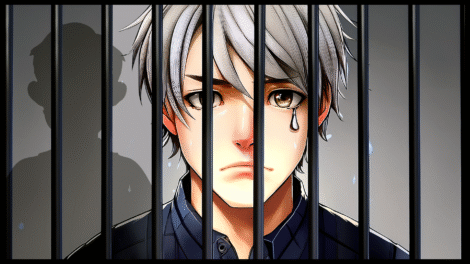The Hot Lotto Fraud Scandal: A Mastermind’s Betrayal of Trust
State lotteries thrive on a simple promise: every player has an equal chance at winning life-changing fortunes. Players willingly part with their hard-earned money, trusting in the fairness of random draws and the integrity of the system. However, this sacred trust shattered in 2017 when Eddie Raymond Tipton, the information security director at the Multi-State Lottery Association (MUSL), admitted to methodically rigging lottery draws and stealing over $24 million from state treasuries. His confession unveiled the largest lottery fraud in American history—a calculated scheme of deception that infected five states, exposed dangerous flaws in lottery security, and forced the industry to rebuild its foundations. This dark tale demonstrates how one man transformed a game of chance into a predetermined con, leading to sweeping reforms that would forever change how lotteries protect their integrity.
The Mastermind: Eddie Raymond Tipton
Eddie Raymond Tipton emerged as an unlikely architect of fraud. Born in 1963, he cultivated a seemingly impeccable career at MUSL, the organization overseeing major lottery games like Powerball and Hot Lotto across 36 member lotteries. These members, primarily state-operated institutions including the prominent Iowa Lottery, trusted Tipton completely. As head of information security, he controlled the very heart of the lottery’s digital infrastructure, ensuring the randomness and security of number-generating systems. This privileged position ultimately became his weapon of choice in orchestrating a sophisticated multi-million-dollar heist.
Yet beneath Tipton’s professional veneer lurked a troubled past. A 1982 burglary conviction had marked his record, foreshadowing his willingness to cross ethical lines. Despite this warning sign, he climbed MUSL’s corporate ladder, gathering trust and expanding his influence. While maintaining an appearance of dedicated professionalism, Tipton secretly crafted an intricate plan to exploit the very system he guarded, using his technical knowledge to bend probability to his will.
The Method: Rigging the Random Number Generator
The brilliance—and sheer audacity—of Tipton’s scheme lay in its stark simplicity. At the heart of every lottery draw sits the random number generator (RNG), a complex digital system crafted to ensure absolute randomness in number selection. Tipton, wielding his privileged position, methodically corrupted this vital mechanism. He inserted a mere two lines of code into MUSL’s central system, a subtle yet potent modification that gave him unprecedented control over winning numbers on three specific dates: May 27, November 23, and December 29. Through this calculated alteration, he could predict winning combinations with uncanny accuracy, transforming random chance into a foregone conclusion.
These dates weren’t arbitrary choices but rather strategic selections made with cold precision. Tipton targeted periods when public attention naturally waned and fewer players participated, thus minimizing his risk of detection. During these carefully chosen times, the random number generator abandoned its primary function of producing unpredictable outcomes. Instead, it followed a hidden script that only Tipton could understand. His manipulation drastically reduced the daunting odds of winning from 5 million to 1 down to a mere 200 to 1. Armed with this knowledge, he could confidently purchase tickets containing the predetermined winning numbers, effectively turning an unpredictable game into a calculated victory.
As years passed, Tipton’s fraudulent operation spread across multiple states, successfully manipulating at least five draws throughout Colorado, Wisconsin, Iowa, Kansas, and Oklahoma. His schemes grew bolder and more sophisticated with each successful rigging. However, the crowning achievement of his fraudulent enterprise—and ultimately its undoing—centered on the Hot Lotto draw of December 29, 2010, in Iowa. This particular draw, boasting a substantial $16.5 million jackpot, would eventually become the loose thread that unraveled his entire empire of deception.
The Unclaimed Jackpot: A Red Flag
While unclaimed lottery prizes occasionally surface in the industry, the mysterious case of the $16.5 million December 2010 prize raised eyebrows when it remained unclaimed for nearly a year. The plot thickened on November 9, 2011, when Philip Johnston, a Quebec-based lawyer, suddenly emerged to claim the prize. Though Johnston correctly recited the winning ticket’s serial number, he conspicuously failed to provide crucial details about its purchase and origin. His attempt to claim the prize directly violated Iowa Lottery’s strict regulations against anonymous payouts, forcing him to withdraw his claim under mounting pressure.
The mystery deepened when a second shadowy claimant materialized: a company based in Belize brazenly attempted to seize the massive prize while stubbornly concealing the ticket holder’s identity. These suspicious maneuvers, marked by deliberate secrecy and calculated evasion, cast an even darker shadow over the unclaimed millions. Consequently, the Iowa Division of Criminal Investigation launched a meticulous probe, suspecting that this unclaimed jackpot merely scratched the surface of a vast criminal enterprise.
The Investigation: A Voice, a Video, and a Breakthrough
October 2014 brought the investigation’s decisive moment with the emergence of an unassuming yet crucial piece of evidence: a 74-second surveillance recording from the Des Moines QuikTrip where someone had purchased the winning ticket. The grainy footage showed a hooded figure completing the transaction, their identity carefully obscured. Yet, the suspect’s casual exchange with the cashier provided investigators with an unexpected advantage—their voice echoed clearly through the brief interaction.
This audio revelation proved decisive when lottery officials, including Iowa’s seasoned investigator Noelle Krueger and her Maine counterpart, instantly recognized the distinctive speech pattern: it unmistakably belonged to Eddie Tipton. The investigation gathered momentum as cellphone records firmly placed Tipton at the QuikTrip during the precise moment of the suspicious purchase. Armed with this damning evidence, authorities swiftly moved to arrest Tipton in January 2015, marking the beginning of his elaborate multi-state fraud scheme’s collapse.
The Confession and Legal Consequences
Initially, prosecutors charged Tipton solely for the 2010 Iowa draw manipulation. Following a comprehensive trial, the court convicted him on two fraud counts in October 2015, imposing a 10-year prison term. However, the true extent of his criminal enterprise remained concealed. In a startling turn of events in June 2017, Tipton accepted a plea deal and confessed to systematically rigging additional lottery draws across four other states. This comprehensive admission led to a substantially increased sentence in August 2017, extending his imprisonment to 25 years.
The scheme’s execution had required accomplices. His brother Tommy Tipton, a former Texas justice of the peace, and their confidant Robert Rhodes played crucial roles in the fraudulent operation. Their punishments varied significantly. Tommy received a relatively mild 75-day jail sentence, while Rhodes faced six months of home confinement and owed $409,000 in restitution. The court ordered the Tipton brothers to jointly repay $3 million. Yet by 2019, despite owning property worth roughly $2 million, they had repaid merely $1,225—a pittance that reflected their continued defiance of justice.
In a startling twist that sent shockwaves through the justice system, Eddie Tipton walked free on parole in July 2022, having served a mere five years of his sentence. His premature release ignited fierce debates about the lenient treatment of sophisticated white-collar criminals who orchestrate schemes of such magnitude.
Lawsuits and Settlements: Seeking Justice for the Cheated
The fraud’s tentacles reached far beyond the lottery organizations, crushing the dreams of countless honest players. Among them stood Larry Dawson, an Iowa lottery participant who boldly challenged the system by filing a $10 million lawsuit against the Iowa Lottery. His argument was compelling: Tipton’s manipulation of the jackpot reset had robbed him of a legitimate chance at victory. Though Dawson eventually accepted a $1.5 million settlement in 2019, the compensation barely reflected the true cost of his stolen opportunity. Meanwhile, thousands of defrauded players united in class-action lawsuits, seeking retribution for their participation in what they now knew were rigged games. By 2019, these legal battles approached their conclusion, offering a measure of solace to the betrayed participants.
Industry Impact: A Wake-Up Call for Lottery Security
The scandal’s most profound legacy lay in how it revolutionized lottery security practices. Tipton’s ingenious deception had exposed dangerous weaknesses in the system, particularly regarding internal threats. In response, MUSL and state lotteries fortified their defenses with stringent security measures: enhanced access restrictions, intensified audit protocols, and sophisticated surveillance systems to monitor employee behavior. They implemented rigorous background screening and dual-control mechanisms, ensuring no single individual could wield unchecked power over drawings. The fraud shattered the industry’s complacency, forcing a fundamental reassessment of trust within lottery operations.
Media Coverage: Captivating the Public’s Imagination
The Hot Lotto scandal seized public attention, spawning extensive media coverage across diverse platforms. GSN’s 2018 documentary “Cover Story: The Notorious Lottery Heist” meticulously dissected Tipton’s scheme. CNBC’s “American Greed” crafted a gripping episode that aired that September. Later, the acclaimed “Criminal” podcast devoted its 160th episode in March 2021 to unraveling this unprecedented fraud. These productions not only entertained but illuminated how easily trusted systems could be corrupted, transforming Tipton into a complex figure who embodied both criminal brilliance and moral bankruptcy.
Conclusion: A Legacy of Mistrust and Reform..
The Hot Lotto Fraud Scandal stands as a stark testament to human greed and technical ingenuity—a chilling reminder that even the most secure systems can crumble under calculated deception. Tipton’s masterful scheme not only drained millions from state treasuries but shattered the public’s faith in lottery systems, which many had viewed as their escape from financial hardship. His betrayal cast doubt on every lottery draw across the nation, leaving players to question the fundamental fairness of the games.
Yet, from these ashes of deceit rose meaningful change. The exposure of these vulnerabilities compelled lottery organizations to fortify their defenses with enhanced security protocols. They implemented stronger encryption methods, tightened access controls, and created more detailed audit trails. These improvements have hardened the system against future manipulation attempts. Thus, Tipton’s legacy remains a paradox: while his actions represent a devastating breach of trust, they ultimately forced crucial reforms that have made lottery systems more secure and transparent for millions of hopeful players.
If you enjoy reading about Lottery Scandals, read my section: Lottery Law and Scandals









